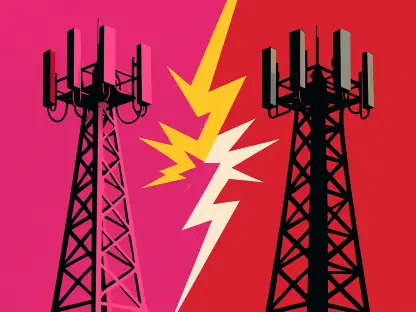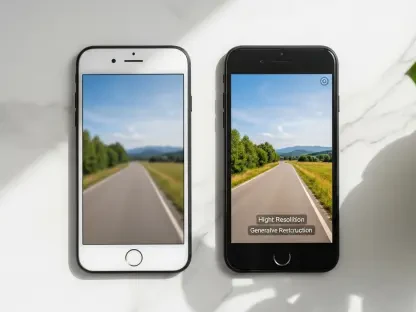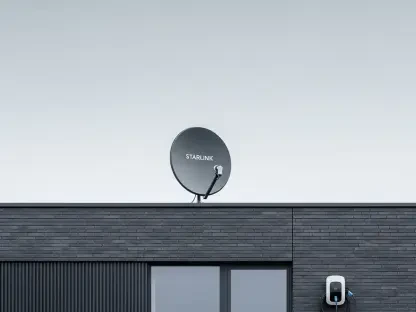As the global mobile messaging market evolves rapidly, the long-standing dominance of SMS faces significant threats from newer technologies such as Rich Communication Services (RCS) and Over-The-Top (OTT) messaging platforms. According to a study by Juniper Research, SMS’s market share by value is set to decrease from 45% in 2024 to a mere 32% by 2029, even as mobile messaging traffic skyrockets from 189 trillion messages in 2024 to 280 trillion in 2029. This shift represents not just a numerical change but a fundamental transformation in how people and enterprises communicate.
The Factors Behind SMS’s Decline
The Rise of Fraudulent Activity and Its Impact
One of the critical factors contributing to the downfall of SMS is the increase in fraudulent activities. Fraudulent messages flood the system, making it less reliable for users who seek secure and dependable communication methods. This insecurity drives both individual users and enterprises to seek alternatives that offer robust security measures. The perception and reality of SMS being susceptible to fraud weaken its standing in the competitive communication landscape.
Moreover, fraudulent activity exacerbates another significant concern: excessive pricing. As regulatory measures are implemented to curb fraud, the cost of sending Application-to-Person (A2P) SMS messages increases. These heightened costs are passed on to enterprises, making SMS an expensive alternative compared to newer platforms like RCS and OTT. As businesses search for cost-efficient yet effective communication channels, they find more value in the features and security offered by RCS and OTT platforms. This dilemma forces operators to reconsider their pricing models to retain their customer base.
Feature-Rich Alternatives Lure Enterprises
Rich Communication Services (RCS) and OTT platforms like WhatsApp and Telegram provide feature-rich alternatives that make SMS appear outdated. RCS offers enhanced functionalities, including multimedia sharing, read receipts, and typing indicators, bridging the gap between the simplicity of SMS and the richness of OTT apps. These features make RCS an attractive option for enterprises looking to engage with their customers on a deeper level.
OTT platforms go even further by incorporating end-to-end encryption and multi-device support, becoming indispensable tools in both personal and enterprise communications. With these platforms, users can send images, videos, voice notes, and even participate in video calls, all of which are not possible with traditional SMS. The evolving demands of users and businesses make these feature-rich platforms the preferred choice, accelerating SMS’s decline in the market.
RCS and OTT: The Disruptive Forces
Security and Feature-Rich Content
Rich Communication Services (RCS) and Over-The-Top (OTT) messaging platforms are significantly disrupting the mobile messaging landscape by offering advanced security features and a broader range of content options. RCS, for instance, provides end-to-end encryption and allows for multimedia file sharing within a single message, making it a more versatile and secure option for both personal and business communications. These features meet the growing demand for security and functionality, which are often lacking in traditional SMS.
OTT platforms like WhatsApp, Telegram, and Facebook Messenger also play a pivotal role. These platforms boast millions of users globally and offer a range of features, including real-time updates, voice and video calls, and advanced security protocols. Enterprises are increasingly turning to these platforms to reach high-spending customers, who are already active on these networks. Therefore, mobile messaging vendors must prioritize security and feature-rich content to stay competitive. Ensuring these elements through universal RCS standards and interoperable verification methods over OTT platforms can capture the trust and investment of high-value enterprises.
Competitive Pricing and Fraud Prevention
Pricing strategies also need significant revamping to fend off competition from OTT messaging services. Georgia Allen, a prominent researcher at Juniper, emphasizes the necessity for RCS pricing to be competitive to avoid losing market share to OTT platforms. Regulatory measures and cross-border price regulation could play crucial roles in making A2P SMS cost-effective. Operators need to bring down international delivery rates targeted at enterprises, providing a balanced alternative to the cost-efficient yet feature-rich options available through OTT services.
Moreover, the landscape’s complexity requires a multi-faceted approach to fraud prevention. Industry stakeholders must collaborate on universal RCS standards and interoperable verification methods over OTT messaging platforms to ensure comprehensive fraud prevention. Only then can these platforms offer secure and competitive services to both users and enterprises. The future of mobile messaging is not just in providing rich features but also in establishing a secure and affordable communication ecosystem.
The Future Landscape of Mobile Messaging
Coexistence and User Preferences
Despite the rise of RCS and OTT platforms, the future of mobile messaging may involve a coexistence of these new technologies with traditional SMS. Users and businesses will likely find value in different platforms for various needs, much like how SMS and OTT services have coexisted previously. The key will be adaptability and the ability to meet user preferences, whether through straightforward text messaging or more intricate multimedia and encrypted communications.
The study by Juniper Research also highlights the increase in demand for conversational messaging. This demand indicates that both RCS and OTT platforms will find niches where they excel, offering tools for richer, more interactive communication. As different demographics and market segments adopt various messaging technologies, the industry will inevitably evolve to cater to these diverse needs. Operators and enterprises must be agile and innovative to navigate this dynamic landscape successfully.
Adapting to New Realities
As the global mobile messaging market evolves at a rapid pace, the well-established dominance of SMS is facing substantial threats from emerging technologies like Rich Communication Services (RCS) and Over-The-Top (OTT) messaging platforms. According to research by Juniper, the market share of SMS by value is projected to drop from 45% in 2024 to just 32% by 2029. This decline occurs even as the total number of mobile messages sent surges from 189 trillion in 2024 to an astonishing 280 trillion in 2029.
This shift indicates more than just a numerical change; it signifies a fundamental transformation in the way people and businesses communicate. The evolving landscape emphasizes the preference for richer, more interactive, and versatile messaging options that RCS and OTT platforms provide. These new technologies offer features like multimedia sharing, real-time updates, and enhanced security, which traditional SMS platforms can’t match. Consequently, SMS must adapt or risk continuing to lose relevance in this rapidly changing market.









